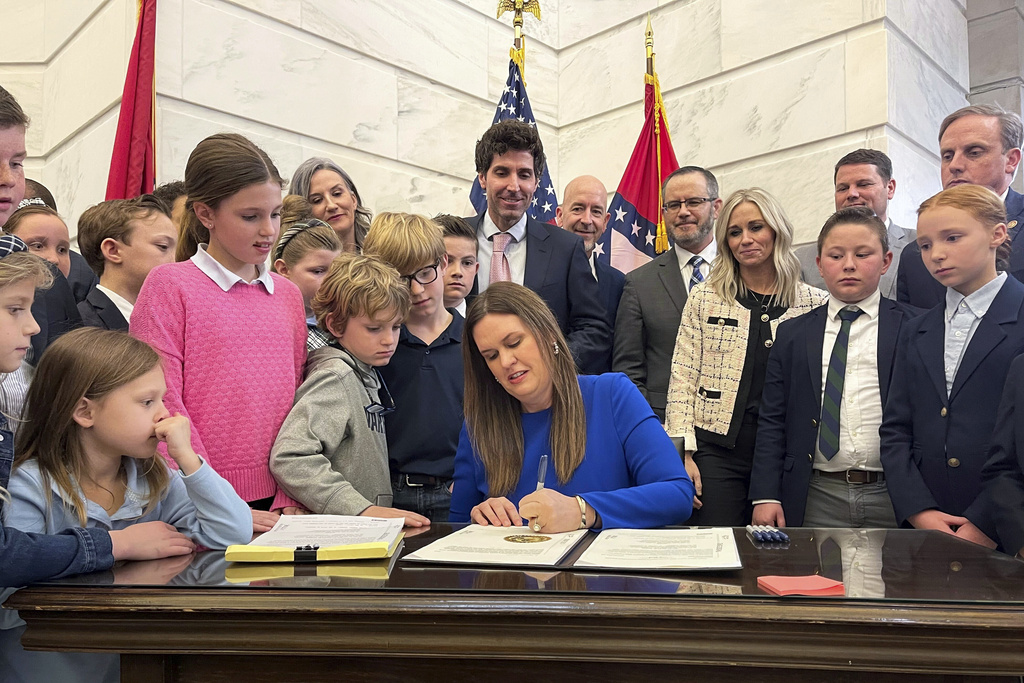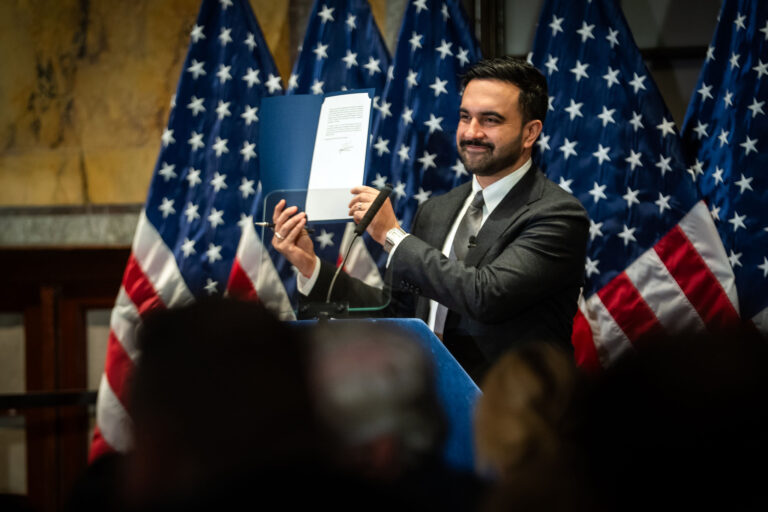A high school teacher and two students sued Arkansas on Monday over the state’s ban on critical race theory and “indoctrination” in public schools, asking a federal judge to strike down the restrictions as unconstitutional.
The lawsuit by the teacher and students from Little Rock Central High School, site of the historic 1957 racial desegregation crisis, stems from the state’s decision last year that an Advanced Placement course on African American Studies would not count toward state credit.
The lawsuit argues the restrictions, which were among a number of education changes that Republican Gov. Sarah Huckabee Sanders signed into law last year, violate free speech protections under the First Amendment and the equal protection clause of the Fourteenth Amendment.
“It absolutely chills free speech” and “discriminates on the basis of race,” the lawsuit said.
“Indeed, defendants’ brazen attack on full classroom participation for all students in 2024 is reminiscent of the state’s brazen attack on full classroom participation for all students in 1957,” the lawsuit said.
Arkansas and other Republican-led states in recent years have placed restrictions on how race is taught in the classroom, including prohibitions on critical race theory, an academic framework dating to the 1970s that centers on the idea that racism is embedded in the nation’s institutions. The theory is not a fixture of K-12 education, and Arkansas’ ban does not define what would be considered critical race theory. The lawsuit argues that the definition the law uses for prohibited indoctrination is overly broad and vague.
Tennessee educators filed a similar lawsuit last year challenging that state’s sweeping bans on teaching certain concepts of race, gender and bias in classroom.
Arkansas’ restrictions mirror an executive order Sanders signed on her first day in office last year. The Republican governor defended the law and criticized the lawsuit.
“In the state of Arkansas, we will not indoctrinate our kids and teach them to hate America or each other,” Sanders said in a statement. “It’s sad the radical left continues to lie and play political games with our kids’ futures.”
Florida Gov. Ron DeSantis blocked high schools in his state from teaching the AP African American Studies course. The College Board released the latest updated framework for the course in December, months after initial revisions prompted criticism the nonprofit was bowing to conservative backlash to the class.
Arkansas education officials last year said the AP African American studies class couldn’t be part of the state’s advanced placement course offerings because it’s still a pilot program and hasn’t been vetted by the state yet to determine whether it complied with the law.
Central High and the five other schools offering the class said they would continue doing so as a local elective. The class still counts toward a student’s GPA.
The lawsuit is the second challenge against Sanders’ LEARNS Act, which also created a new school voucher program. The Arkansas Supreme Court in October rejected a challenge to the law that questioned the Legislature’s procedural vote that allowed it to take effect immediately.
“The LEARNS Act has brought much-needed reforms to Arkansas. I have successfully defended (the law) from challenges before, and I am prepared to vigorously defend it again,” Republican Attorney General Tim Griffin said.
(AP)












One Response
The claim is ridiculous. A government employee, speaking on the job, for the government, has no freedom of speech. Just as a private employer may required his employees, when speaking for him and on the job, to say whatever he likes and not to say what he doesn’t like, the government may do the same thing.
And it’s well-established that high school teachers (but not university professors) are speaking for the school, not for themselves. That is why public high school teachers (but not university professors) are barred from endorsing any religious doctrine or practice, from leading prayer, etc., and schools are required to prevent them, and to fire them if they won’t obey. If they had freedom of speech they would be allowed to do those things, and indeed the school could not prevent them.